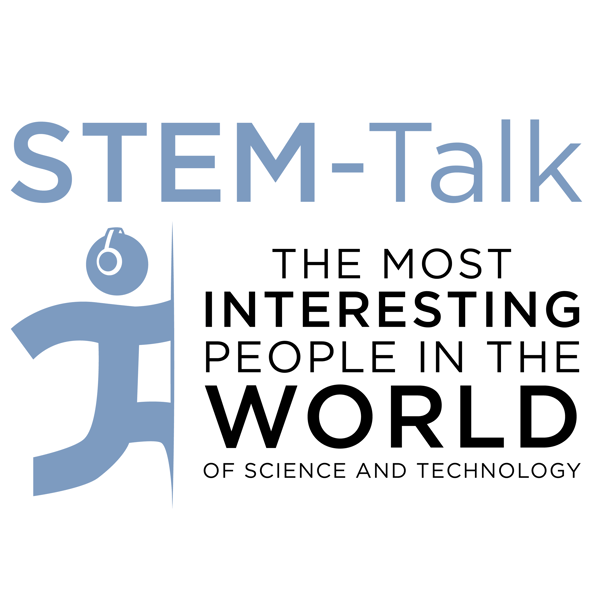Episode 184: Ken and Dawn answer listener questions on AI, grip strength, ketamine, protein, digital twins, and more!
STEM-Talk
Dawn Kernagis and Ken Ford
4.6 • 694 Ratings
🗓️ 10 July 2025
⏱️ 44 minutes
🧾️ Download transcript
Summary
Transcript
Click on a timestamp to play from that location
| 0:00.0 | Welcome to STEM Talk. |
| 0:01.0 | Stem Talk. |
| 0:02.0 | Stem Talk. |
| 0:03.0 | Stem Talk. |
| 0:04.0 | Stem Talk, where we introduce you to fascinating people who passionately inhabit the scientific and technical frontiers of our society. |
| 0:15.0 | Hi, I'm your host, Don Cornegas, and joining me to introduce today's podcast as the Man Behind the curtain, Dr. Ken Ford, IHMC's founder and chairman of the double secret selection committee that selects all the guests who appear on STEM Talk. |
| 0:28.2 | Hi, Don. Great to be here. |
| 0:30.4 | Today we have another Ask Me Anything episode that covers a wide range of topics, and we have questions from listeners that range from AI to protein consumption |
| 0:39.1 | to whether grip strength is indeed a biomarker for longevity. So buckle in for another episode |
| 0:44.7 | of Ask Me Anything. But before we get to our listeners' questions, we have some housekeeping to |
| 0:50.2 | take care of. First, we really appreciate all of you who have subscribed to STEM Talk, |
| 0:55.5 | and we are especially appreciative of all the wonderful five-star reviews. |
| 1:00.3 | As always, the Double Secret Selection Committee has been continually and carefully reviewing |
| 1:05.0 | iTunes and other podcast apps for the wittiest and most lavishly praised field reviews read on STEM Talk. |
| 1:10.8 | If you hear, you review read on STEM Talk. |
| 1:13.0 | Just contact us at STEMTalk.iHMC.us to claim your official STEM Talk t-shirt. |
| 1:18.3 | Today, our winning review comes from a longtime listener who goes by the moniker Flint. |
| 1:24.8 | The review is titled, Thank You. |
| 1:27.0 | It reads, I really appreciate the episode |
| 1:29.3 | of Joanne Manson that addressed menopause and other women's health issues. I like the way |
| 1:35.1 | STEM talk frequently addresses topics that don't get much attention in traditional media, |
| 1:40.6 | at least not in a comprehensive way. Thank you for these in-depth conversations. |
... |
Please login to see the full transcript.
Disclaimer: The podcast and artwork embedded on this page are from Dawn Kernagis and Ken Ford, and are the property of its owner and not affiliated with or endorsed by Tapesearch.
Generated transcripts are the property of Dawn Kernagis and Ken Ford and are distributed freely under the Fair Use doctrine. Transcripts generated by Tapesearch are not guaranteed to be accurate.
Copyright © Tapesearch 2025.

